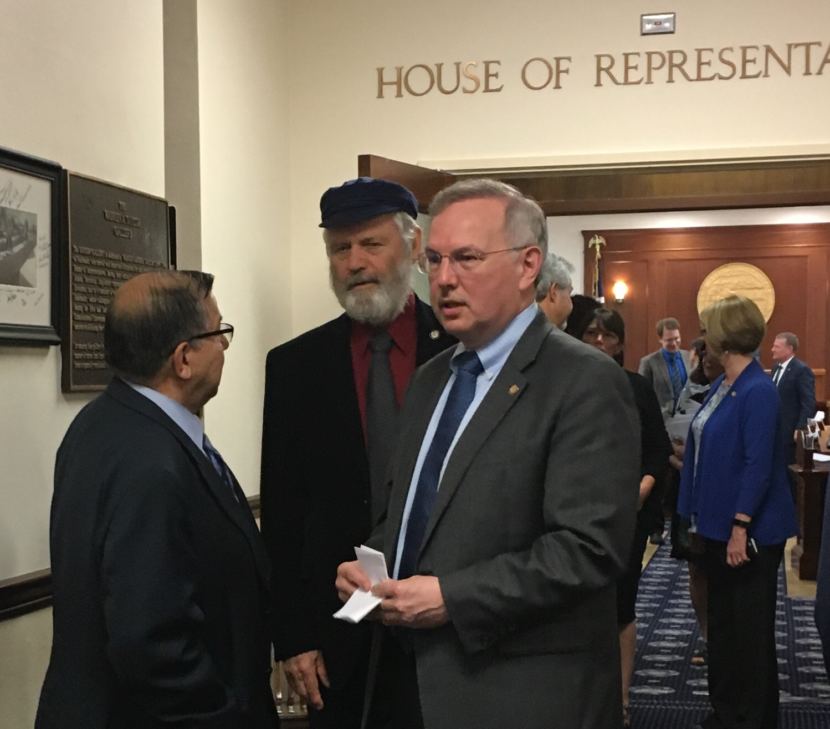
The Legislature avoided a state government shutdown by passing an operating budget Thursday, eight days before the deadline, but it hasn’t addressed the capital budget, or other important issues facing the state’s future.
Gov. Bill Walker added a bill making changes to oil and gas taxes to the special session agenda late Thursday.
Lawmakers and aides say informal talks could happen outside of Juneau in the coming days to decide how to handle the governor’s request to consider the bill.
But the two sides are far apart on the oil and gas tax bill. It’s also not clear when Walker will ask lawmakers to consider the capital budget.
Legislators will take a break after a long five months, House Speaker Bryce Edgmon said.
“At this point, I think the Legislature is going to stand down for some time, work with the governor, and we have more work to do on the capital budget,” he said. “I think the governor may at some point, later on, want the Legislature to address fiscal measures.”
The budget deal was helped by pressure growing on both the House and Senate majorities to avoid a shutdown, not just for the effect on government workers, but for the impact on private-sector jobs like commercial fishing.
Both sides showed a willingness to give ground.
The Senate agreed to a budget that included a smaller cut than what it had passed earlier. It also includes a $9 million increase for school funding, rather than the $65 million cut the Senate had passed.
The House agreed to drop a $1.7 billion appropriation to the public education fund.
But no one wanted a shutdown.
Workers could breathe a sigh of relief today when the state officially rescinded their layoff notices.
One area that will be changing is Permanent Fund dividends.
PFDs are going to be $1,100 in October, $100 more than last year. But they’re only half of what residents would receive under a formula set by state law.
It’s the first time the Legislature hasn’t fully funded PFDs.
House Speaker Bryce Edgmon said more PFD money could be added in the capital budget, but even if the Senate agreed to that – which is a big if – Walker could veto the money like he did last year.
This year has seen 28 bills passed, the fewest of any year since statehood.
Walker didn’t include anything but the budget on his call for the second special session last week. So the Legislature hasn’t agreed on a plan to balance future state budgets.
At best, the sessions led to a mixed result, according to Gunnar Knapp, a retired economics professor with the Institute of Economic and Social Research at the University of Alaska Anchorage.
“The good news is the state government’s not going to shut down,” he said. “The bad news is, it’s barely a dent in, you know, facing up to the continuing problem we have with … the imbalance between the spending and its revenues.”
The Senate majority insists the state doesn’t need new taxes.
The House majority says they won’t draw from Permanent Fund earnings without taxes, such as more taxes on the oil and gas industry, or a broad-based tax like an income or payroll tax.
The state faces an informal deadline to pass a capital budget at the end of September, in order to benefit from federal transportation funding.
